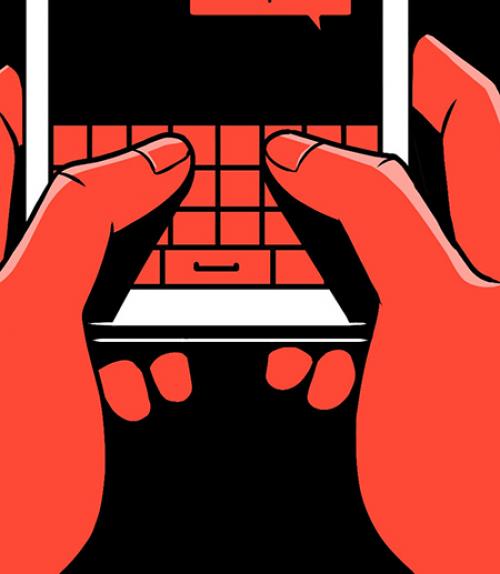Anticipation is mounting around the possible spread of disinformation on social media channels in the lead up to Tuesday’s presidential election and following the closing of polls.
Alexandra Cirone is a professor of government at Cornell University who teaches a course on post-truth politics. Cirone studies the spread of fake news and disinformation online and says disinformation will propagate during and after the election and that social media users should be cautious about what information they choose to share.
“During the election and even after, citizens may see a flood of disinformation, particularly on social media sites.
“In particular, in the next 24 hours potential voters should be on the lookout for fake news about the election. This could be either lies about the voting process, or fake news about militia activity or danger at polling sites. This type of disinformation is a form of voter suppression and is designed to keep voters away from the polls.
“To ensure they know how to vote, people should check with their local election boards or look at voting information sites such as rockthevote.com or iwillvote.com. And if citizens actually encounter something unusual when voting, they should flag it to the election commission, a reputable news outlet, or 1-866-OUR-VOTE.
“We are also seeing foreign and domestic actors try to impersonate local news organizations to spread fake news. This can include an increasing number of for-profit political websites, funded by partisan groups or corporate PR firms, that try to appear like local newspapers but who don’t present accurate information. People should double check to make sure the page or account they are following for local news is, in fact, accurate!
“What can people do?
“Citizens should make sure to get breaking news about the election from reputable, mainstream media outlets (and then also fact-check any suspicious claims, using fact-checking websites such as PolitiFact.com or FactCheck.org).
“Users of social media should also be careful what they share – stop to read and fact-check breaking news stories before sharing them on social media. And if someone accidentally shares false information, they should delete their posts.
“Finally, it’s important to remember the real facts about this contentious election:
- “Voter fraud in the United States is exceptionally rare; claims of widespread voter fraud in the U.S. are false.
- “Absentee voting is normal and an important part of free and fair elections, and the pandemic has understandably increased the number of absentee ballots this year.
- “There’s a good chance we will not know the result on Election Day, and the official result won’t come until days after — but this is normal. In a democracy, it is important to collect and count every valid vote, and this takes time. No candidate or politician from either party should suggest otherwise, and no one should claim to know the official result on the night of the election.
- “Harassment outside polling places, physically blocking access to polling places, or threatening language at a polling place or on social media are forms of voter intimidation, and should be promptly reported to 1-866-OUR-VOTE.”
For media inquiries, contact Linda Glaser, news & media relations manager, lbg37@cornell.edu, 607-255-8942




